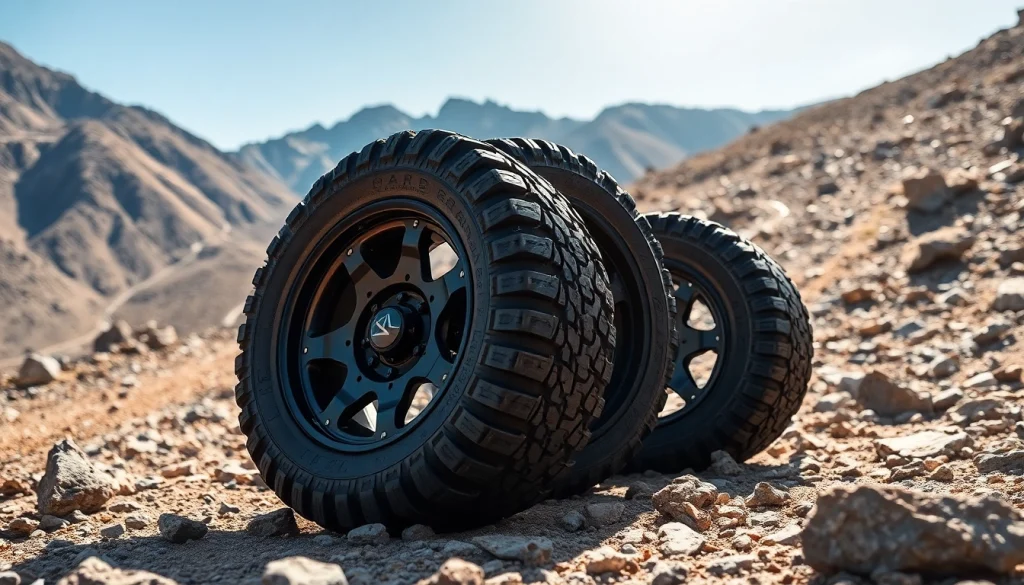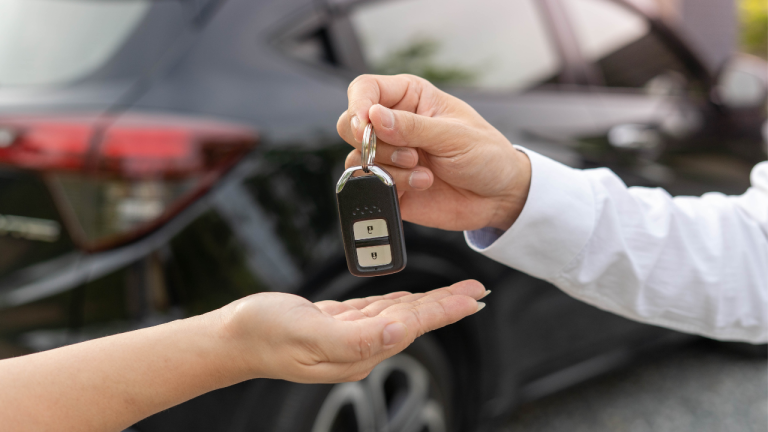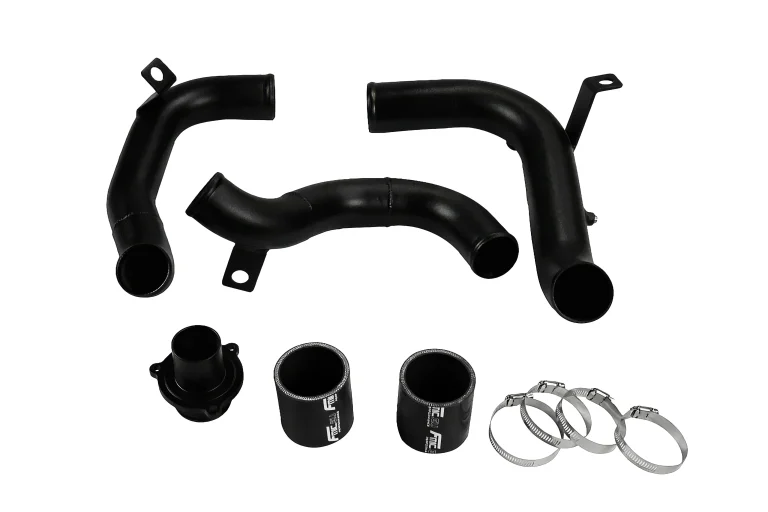
Understanding Off Road Wheels: What You Need to Know
If you’re an off-road enthusiast, you know that the wheels you choose can significantly impact your vehicle’s performance and appearance. From rough terrains to rugged trails, the right off road wheels can enhance your capabilities and driving experience. In this guide, we’ll explore the essential aspects of off-road wheels, help you understand the different types available, and provide insights on how to maintain them for longevity.
Types of Off Road Wheels
Off road wheels are specifically designed to handle the demands of rugged terrains. There are various types to consider, including
- Beadlock Wheels: These wheels feature a special ring that holds the tire in place, preventing it from slipping off during extreme off-road conditions.
- Forged Wheels: Created from a solid block of metal, forged wheels are known for their strength and lightweight properties, making them a favorite for high-performance vehicles.
- Cast Wheels: Made by pouring molten metal into a mold, cast wheels are typically less expensive but may sacrifice some strength compared to forged options.
- Aluminum Wheels: Lightweight and resistant to rust, aluminum wheels are a popular choice for off-road vehicles, providing both aesthetics and performance benefits.
- Steel Wheels: Known for their durability and ability to withstand rough conditions, steel wheels are often heavier but more affordable than aluminum counterparts.
Key Features to Consider
When selecting off-road wheels, it’s important to consider several features:
- Width and Offset: A wider width provides better stability, while the offset determines how far the wheels sit inside or outside the wheel wells.
- Weight Capacity: Ensure that the wheels can handle the weight of your vehicle and any additional loads.
- Tire Compatibility: Check that the wheels can accommodate the tire size and type best suited for your off-road adventures.
- Finish and Coating: Depending on your aesthetic preferences, different finishes like black, chrome, or powder-coated options are available, with coatings that offer additional protection from rust and scratches.
Benefits of Upgrading Your Wheels
Upgrading to high-quality off-road wheels offers numerous advantages:
- Improved Performance: Specialty wheels can enhance traction and handling on rough terrains.
- Increased Durability: Better materials can withstand harsher conditions, extending the lifespan of your wheels.
- Enhanced Aesthetics: New wheels can elevate your vehicle’s appearance, giving it a more aggressive or stylish look.
- Better Weight Distribution: Properly chosen wheels can help with load distribution, reducing wear on other vehicle components.
Popular Off Road Wheels Brands
Top Manufacturers in the Market
The off-road wheel market is filled with reputable brands known for their quality and performance. Some leading manufacturers include:
- KMC Wheels: Renowned for aggressive styles and robust constructions, KMC offers a variety of wheels perfect for lifted trucks and SUVs.
- Fuel Off-Road: This brand is known for its cutting-edge designs that attract off-road enthusiasts, offering wheels that combine style with functional performance.
- Weld Racing: With a performance-oriented focus, Weld Racing applies their racing heritage to create durable wheels for both street and off-road use.
- Black Rhino: Specializing in truck and SUV wheels, Black Rhino provides a wide selection of durable and stylish rims designed for off-road applications.
- Method Race Wheels: Method focuses on lightweight, high-strength wheels designed for extreme off-road performance.
Comparing Styles and Technologies
When shopping for off-road wheels, compare different styles and technologies. For instance, beadlock wheels are great for extreme off-road conditions, while forged wheels offer superior strength for competitive settings. Researching and understanding differences can help you choose the best option for your needs.
Tracking Down Reviews and Ratings
Before making a purchase, examine user reviews and ratings for specific models. Platforms like social media groups, automotive forums, and dedicated review sites can provide firsthand experiences that can guide your decision. Look for insights about durability, performance under various conditions, and customer service experiences with the brands.
Fitment and Installation: Getting it Right
How to Ensure Proper Fitment
Proper wheel fitment is crucial for performance and safety. Here are some steps to ensure you select the right fit:
- Consult Vehicle Specifications: Check the manufacturer’s specifications for wheel sizes, offsets, and load ratings to find a compatible wheel.
- Use a Wheel Fitment Calculator: Online tools can help you input your vehicle details to calculate optimal wheel specifications.
- Test Your Setup: If possible, test fitment on your vehicle to ensure there’s no rubbing against suspension components or bodywork.
Installation Tips for Off Road Wheels
Installing off-road wheels can be straightforward, but following these tips can enhance the process:
- Use the Correct Tools: Ensure you have the right tools, including a torque wrench, to secure the wheels to the proper specifications.
- Follow Proper Torquing Sequence: Tighten wheel nuts in a star pattern to evenly distribute pressure and avoid warping the wheel.
- Inspect Alignment: After installation, check the wheel alignment to ensure optimal performance and prevent uneven tire wear.
When to Seek Professional Help
If you have any doubts about proper fitment or installation, it’s best to seek professional help. An experienced mechanic can ensure that your off-road wheels are correctly installed and aligned, maximizing performance and ensuring safety during off-road adventures.
Maintaining Your Off Road Wheels for Longevity
Cleaning and Care Tips
To maintain the appearance and integrity of your off-road wheels, regular cleaning and maintenance are critical:
- Regular Washing: Clean your wheels frequently with soap and water to remove mud, dirt, and brake dust.
- Protective Coating: Consider applying sealants or waxes designed for wheels to provide an extra layer of protection against corrosion and scratches.
- Avoid Harsh Chemicals: Use gentle cleaners to prevent damaging the finish on your wheels.
Common Issues and Fixes
Even with regular maintenance, you may encounter issues. Here are a few common problems and their solutions:
- Cracked Wheels: Inspect your wheels regularly. If you find a crack, it’s essential to replace the wheel immediately to avoid catastrophic failures.
- Corrosion: If you notice rust, clean it thoroughly and apply a rust inhibitor or consider having the wheels professionally refinished.
- Uneven Wear: This can often be a sign of improper alignment. Regularly checking and adjusting your wheel alignment can help prevent this issue.
Seasonal Maintenance Practices
Different seasons can present unique challenges for off-road wheels:
- Winter: Road salt and brine can lead to corrosion. Regularly wash your wheels and apply protective coatings.
- Summer: Heat can lead to tire expansion; checking pressures regularly ensures optimal performance.
- Before and After Off-Road Trips: Conduct thorough inspections before and after your adventures to identify any issues early.
What to Look for When Buying Off Road Wheels
Factors Affecting Quality and Performance
Several factors will impact the overall quality and performance of off-road wheels. Here are essential aspects to consider:
- Material: Opt for high-quality materials like aluminum or forged alloys for improved performance and weight savings.
- Design: Choose a design that complements your vehicle while maintaining functionality—deeper spoke designs can improve airflow for brakes.
- Brand Reputation: Stick to well-known brands with proven track records in off-road applications, ensuring quality and reliability.
Price Ranges and Budget Considerations
Off-road wheels come in various price ranges, often determined by brand, material, and technology:
- Budget Options: Expect prices ranging from $100 to $200 per wheel, typically offering good performance but may lack advanced features.
- Mid-Range Options: Generally priced between $200 and $600 per wheel, these often feature better materials, enhanced durability, and refined designs.
- Premium Options: High-performance wheels can cost $600 and up, often from reputable brands and featuring cutting-edge technologies.
Where to Buy: Online vs Local Retailers
Deciding where to purchase your off-road wheels can affect your buying experience:
- Online Retailers: Offer a vast selection and often competitive prices. Ensure you check return policies and warranties.
- Local Retailers: Allow for physical inspections before purchase, and many can assist with installation, ensuring correct fitment.
- Manufacturer Websites: Purchasing directly from manufacturer websites may provide additional assurance of authenticity and access to the latest products.






